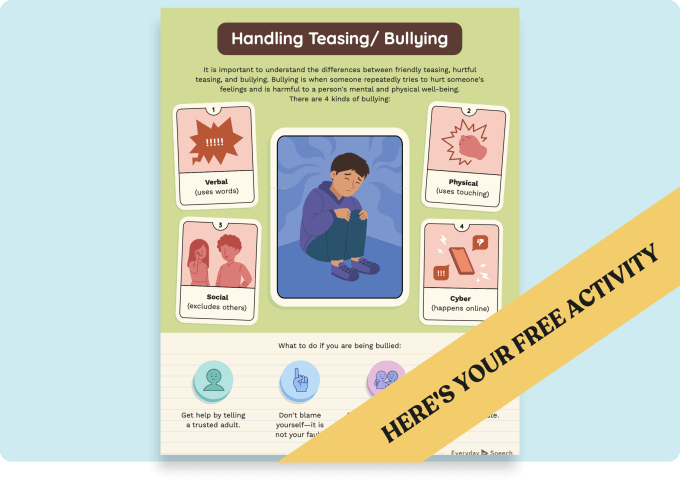Two Sides: An Activity to Encourage Thoughtful Communication
Get free social skills materials
No-prep lessons on self-regulation, emotional recognition, conversation skills, and more.
Sign up hereIntroduction
Communication is an essential skill for students, especially those in special education programs. Two Sides is an interactive game that encourages students to think before they speak, promoting social-emotional learning and fostering a respectful classroom environment. The activity helps students differentiate between thoughts that should be kept in their heads and those that can be shared with others, teaching them to communicate effectively and considerately.
No-Prep Activity
The Two Sides activity requires no preparation or materials from the educator. To begin, gather your students in a circle and explain the concept of the game. You will present a scenario in which a character is faced with a decision to either think or say something. The students must decide whether the character should keep their thoughts to themselves or express them out loud.
For example, present a scenario in which a student named Alex believes their friend has taken their pencil. Ask the students if Alex should think or say, “I think you took my pencil.” Encourage students to discuss their reasoning, focusing on whether the statement is kind, helpful, and respectful. As the game progresses, present more complex scenarios to challenge students’ critical thinking and spark meaningful discussions.
Discussion Questions
- Why is it important to think before we speak? How can this help us communicate more effectively?
- Can you think of a time when you chose to keep a thought in your head instead of saying it out loud? How did it affect the situation?
- What are some strategies we can use to decide if a thought should be shared with others or kept to ourselves?
- How can we communicate our thoughts in a respectful and kind manner, even when we disagree with someone?
- How does practicing thoughtful communication contribute to a positive classroom environment?
Related Skills
In addition to thoughtful communication, other related skills that can benefit students in special education programs include active listening, empathy, conflict resolution, and self-awareness. These skills work together to promote social-emotional learning and foster positive relationships among peers and educators.
Next Steps
If you’re interested in exploring more activities that promote social-emotional learning and support the development of essential life skills, we invite you to sign up for free samples of our resources at Everyday Speech. Our comprehensive collection of materials includes videos, games, and activities designed to engage students and facilitate meaningful discussions in the classroom.

